Pam Schweitzer, MBE, Reminiscence Expert & Coordinator of the European Reminiscence Network
Tags
Dementia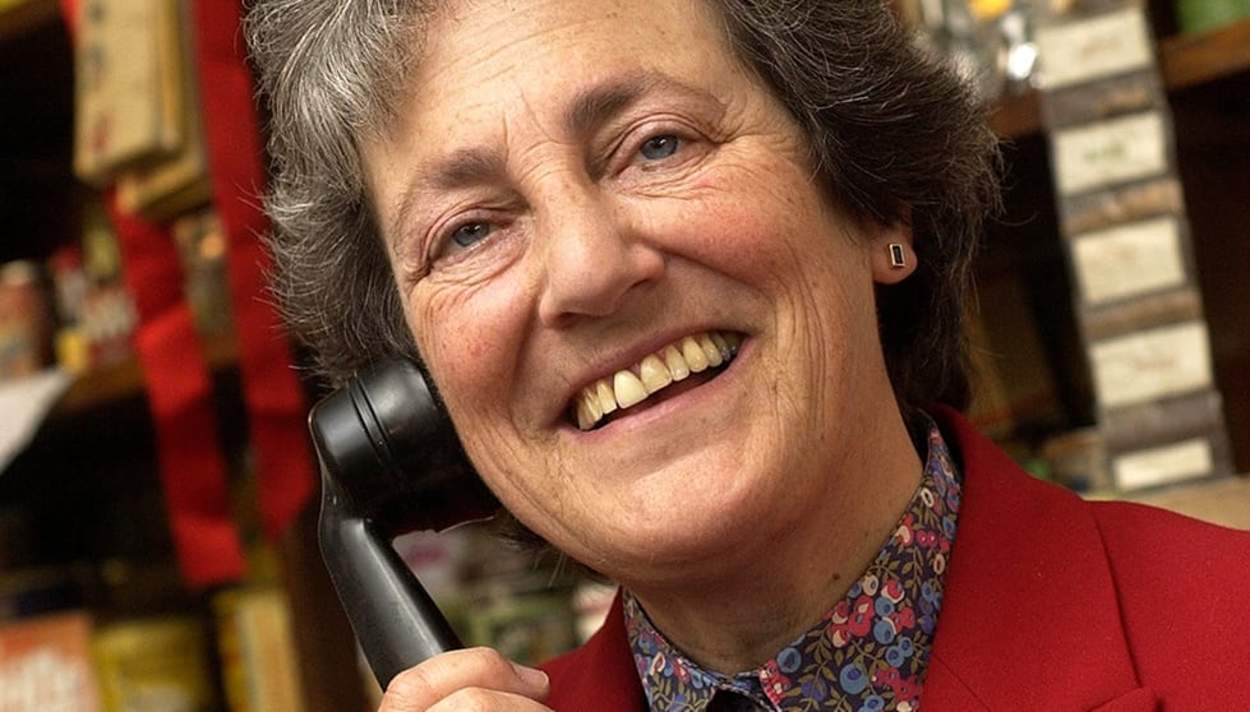
One of the leading experts in the field of reminiscence therapy for over 30 years, Pam Schweitzer MBE is passionate about the positive effects of this work on older people and those with dementia – focusing on triggering individual memories and the sharing of stories in reminiscence groups. We talk to her about breaking down the boundaries between history and memory, the increasing recognition of the importance of reminiscence work and the power of stories as the fabric of our lives – both personally and in the social record.
How did you first become involved in reminiscence therapy?
I was working in education bringing young and old together through educational projects and encountered a group of older people telling stories and sharing their experiences.
I saw what it did for them physiologically, emotionally and psychologically – the process of remembering in a group and triggering one another’s memories had a dramatic effect on how they looked, sounded and felt.
There was a brightening of the face and body, increased confidence and engagement with other people in the room and a real sense of community, having remembered common experiences.
Listening to those stories, and with my background in theatre and drama, I felt that they would lend themselves to dramatisation, so I formed a theatre company, Age Exchange Theatre Trust, to create plays based on these memories and tour them nationally.
Most of the performances we did were for older people who otherwise wouldn’t have been able to come, in sheltered housing, community centres and even hospitals. The focus was to stimulate their memories through reminiscence therapy, so that after the performance there could be further reminiscence work to support those communities.
Reminiscence theatre work was my baby for 30 years – and within that, there were other activities. For example, the publishing side of my work developed naturally because the stories we collected for the shows were so interesting that we didn’t want them to die with the performance.
So I made books of the memories and photographs and those went out with the shows. It also gradually became clear that the venues we were playing wanted training and support in reminiscence work and we were able to set that up.
How important is it to tell stories between generations?
There is always an intergenerational aspect to oral history in that you’re preserving the past and the present, for the future. The stories we generated when researching the major productions on big topics involving social history in the UK have a life after the initial production and tour.
For example, I started interviewing people in 1982/1983 and those people were in their eighties and nineties then. Had those memories not been captured, they would have been lost knowledge and experience.
I also made a point of targeting people to interview who would never have committed their memories to writing – people for whom writing wasn’t something they did or was perhaps even an impossibility. I was looking for something more spontaneous as a story that would lend itself to dialogue in theatre form.
Implicit in storytelling is the notion that this story will reach others, and people tell stories because it gives them a greater sense of their reality and participation in history. I am currently working at the University of Greenwich, with students who are using the memories collected all those years ago as inspiration for new work, now.
I am not interested in oral history that just locks up memory; I am interested in it as a story and as a repository for future work. I’m committed to breaking down disciplinary boundaries between history, theatre and memory.
By situating the questions in a creative reminiscence session dedicated to a particular subject or life period, they will respond and remember many things – and that process is a very positive one, it changes people’s’ sense of self and self-esteem.
You can also find that someone you think is apparently no longer able to contribute is actually able to say, or show, quite a lot about school days or falling in love etc. This stops people with dementia being written-off as unreachable and brings them into both a social and a personal relationship.
How did you expand your reminiscence work internationally?
My international work developed in response to growing numbers of older people in the demographic, and the sense within Europe that more had to be done for them to preserve their social identity.
There was an already a European Reminiscence Network, which I founded in 1992, and which had undertaken a range of projects, primarily arts-based and often around ethnic minorities’ experience (of migration for example) in different EU countries.
In the late 1990s, though, the idea came about that we should look at dementia because it was a growing phenomenon. We had been advised by the European Commission, that this needed to be addressed and started from the premise that we wanted to test whether reminiscence has a particular value in the care of people with dementia. This value certainly wasn’t obvious at the time, especially because dementia is to do with memory failure, so why would you want to work with memory?
My intention was to use reminiscence as a tool for self-expression, communication, sense of personhood and reduction of social isolation, so we did a series of projects around that.
The European Reminiscence Network expanded its partnership for this particular project. We evolved a programme – ‘Remember Yesterday, Caring Today Training’ (RYCTT), held a common training programme and developed a series of reminiscence workshops and groups (RYCT) – which we held in common, pooled our information and reported back to to the European Commission in our own countries.
How useful is reminiscence work for those living with dementia?
When I am working with dementia, the emphasis is not so much on the accuracy of the memory; it’s what remembering your own past does to your sense of self and in the mind and heart of the person looking after you – usually a spouse or son/daughter.
Reminiscence is something in which, with the right triggers, people with dementia can participate in successfully. When stimulated by songs of a particular time – dances, clothing, objects, etc., they can share many things about their life, which if you asked them in the form of straight questions, they probably wouldn’t be able to answer.
By situating the questions in a creative reminiscence session dedicated to a particular subject or life period, they will respond and remember many things – and that process is a very positive one, it changes people’s’ sense of self and self-esteem.
You can also find that someone you think is no longer able to contribute is actually able to say, or show, quite a lot about school days or falling in love etc. This stops people with dementia being written-off as unreachable and brings them into both a social and a personal relationship.
When I am working with dementia, the emphasis is not so much on the accuracy of the memory; it’s what remembering your own past does to your sense of self and in the mind and heart of the person looking after you – usually a spouse or son/daughter.
How important is reminiscence work for carers?
Sometimes, the day-to-day business of looking after a husband or wife with dementia or aged parent is debilitating, isolating and often disappointing because the old age you might have been planning is very different to the one you’re landed with.
At first, carers are often not sure they’re going to get anything out of committing themselves to a reminiscence session, especially if it involves attending with their relative and other people they do not know, instead of having an afternoon to themselves.
However, most family carers find that it helps them to remember that their own relationship has a history and that perhaps the balance has been different in the past – the person who now needs looking after may have been the main provider or the rock of the relationship.
It puts what’s happening now into the wider context of a shared life and has a hugely cementing and reinforcing effect on the couples or parent and child. It rebuilds belief in that relationship and its durability, as they remember obstacles they have overcome together in the past and shared some of these memories with other couples in the group.
Sometimes carers are in danger of losing their own sense of identity too, and so going back over their own life, in a shared process, is crucially important in order to remember that life as an entirety, and not just the hole they sometimes feel they are in at the moment.
How has reminiscence developed in the UK and Europe?
I think there has been a massive development in reminiscence over the past 30 years, involving older people and those with dementia – and a lot of imaginative work is being performed on how to engage people with dementia, using arts and reminiscence activities throughout Europe.
I have just come back from Japan and quite a lot of what they’re doing there is inspired by the work we are doing in this country, Scandinavia, USA and Canada. Today in the UK, you find a lot of art projects, including those at museums and galleries, incorporating some reminiscence, especially projects aimed at people with dementia.
The difference between these art projects and the work I’m involved in, is that in my work, the process of remembering in a group, is what is primary, and artistic approaches are a means to an end – not an end in themselves, although they can be hugely enjoyable and stimulating too.
Further information about Reminiscence and Pam’s work:
The European Reminiscence Network aims to promote best practice in reminiscence work and to share experience across national frontiers.
Find out more about RYCTT and becoming an apprentice here.
For more information on Pam’s work:
What does the future in terms of reminiscence work?
I have been devoting a lot of time into setting up a training programme and apprenticeship for people from many different fields, including dementia and care work – bringing them into partnership with artists, actors and musicians to use these resources in reminiscence work.
This ‘Remembering Yesterday, Caring Today Training’ scheme (RYCTT) is accredited by the European Reminiscence Network and is now running in eight EU countries and has been awarded the ‘success story’ accolade by the European Commission.
In the Autumn (November 16-17 2017) I will be hosting a conference to mark 20 years of reminiscence practice in the dementia field, and everyone who is interested should get in touch.
I am currently archiving all the memories connected with those theatre productions created during my time as Artistic Director of Age Exchange Theatre Trust and Reminiscence Centre (1983-2005) and digitising them so that they will endure into the future.
I continue to work with students at the University of Greenwich, and enjoy this close contact with young people. Tomorrow, I shall receive an Honorary Doctorate in Arts from the University, and I feel very honoured by this.
I continue to get a lot of pleasure from delivering projects and running groups with older people from a variety of different countries and backgrounds.
I would like to be sure that the work will continue (especially the work supporting families living with dementia) in the future, and I would like it to continue to grow in recognition so that more families could benefit from it.
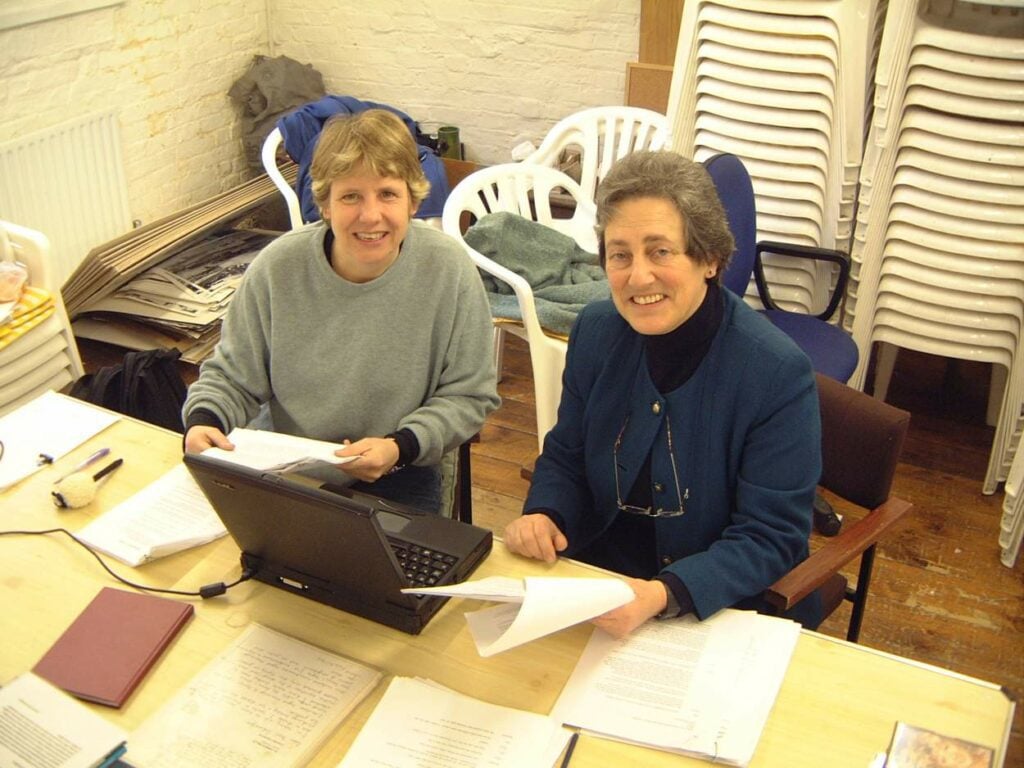
What would you say to others diagnosed with early onset dementia?
For every door this condition closes to me, I will open another. Simple things can help a lot. I have colour-coded keys to our house, for example. And if I want to do tasks, I try to stage things, and break it into little blocks, which works well.
I’m a great believer in finding the simplest solutions to live well, whether that’s whiteboards around the house to remind, and so on. I think you have got to be very practical and very positive.
There’s probably no medical basis for it, but I think the more positive you are, the longer you can can stave it off. I didn’t get depressed when I got diagnosed. I thought “let’s just get on with it.”
What I am hoping to do is to try and show people that you can live very well with this condition. It’s not the end of life, it’s just a little different, is all it is. There are people being diagnosed in my age group all the while and some are finding it hard to accept – if I can help them come to terms with it, then I will have done my bit.
This interview was part of a series brought to you by Elder, the company who can take care of all your loved one’s live-in care needs. Whether your are looking for London live-in care or require assistance in another part of the country, Elder will ensure that all of your care needs are taken care of.
Related Features
How to Create a Dementia-Friendly Home
Thoughtful design and adaptation can make a living environment dementia-friendly – and allow those with the condition to stay at home for longer with live-in care.
A Guide to Dementia-Friendly Days Out
How do you ensure a trip out with an elderly family member is enjoyable for everyone? We look at the challenges – and solutions for the perfect day out together
Eight Great Dementia Products That Can Make Life Easier
A diagnosis of dementia means finding new, adapted and often innovative ways to support everyday living. We list some of the challenges faced by those living with dementia – and some great products, from low-key to high-tech, that can help.
Exploring Creativity in Dementia Care: An Interview with Author John Killick
Poet and author John Killick has written seven books on dementia, including Dementia Positive, Communication and the Care of People with Dementia and Playfulness and Dementia.
Interview with Tommy Petillo, Product Designer and Dementia Circle Website Manager
We talk to product designer and Dementia Circle web manager Tommy Petillo about the value of inclusive design, sharing information and how both can empower people to live independently for longer.
Read more expert views
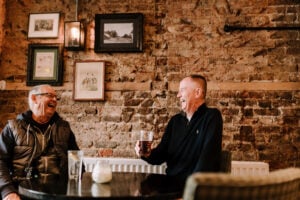
How ageist is our society? – Interview with the Centre for Ageing Better
Ahead of their Action Day on the 20th March, we spoke to the Centre for Ageing Better about their pioneering ‘Age Without Limits’ campaign which is encouraging everyone to take a stand against ageism.

More than just a pet – Interview with Give a Dog a Bone Founder Louise Russell
Give a Dog a Bone founder Louise Russell discusses her mission to provide companionship for elderly individuals through the love and comfort of pets. Learn more about her inspiring work to improve the lives of older people.
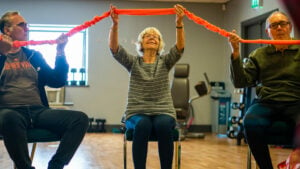
Neurodiversity and ageing – What do we know?
In this guest think piece Professor Amanda Kirby discusses how far we’ve come in understanding neurodiversity in later life, and how far we still have to go.
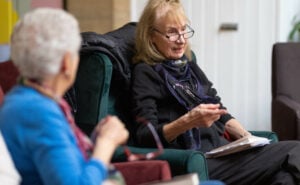
Struggling to talk about care? Elder’s latest survey finds you’re not alone.
Back to News page > Quick overview A recent survey from Elder – a leading live-in care marketplace, found just 27 percent of older people

How can caregivers overcome sleep problems?
We asked Channel 4 sleep expert Stephanie Romiszewski about the impact of poor sleep, and how caregivers can break unhealthy sleep cycles.

The therapeutic power of gardening: Advice from Thrive
We recently asked Thrive – a national charity that uses gardening to improve wellbeing – about the therapeutic power of gardening.